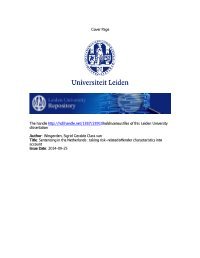By Erin Jacobs Valentine, Sarah Picard
Jurisdictions across the United States are implementing reforms to their pretrial systems to reduce the number of people who are held in pretrial detention—that is, who remain incarcerated in jail while they await the adjudication of their cases. As part of this effort, many jurisdictions are moving away from money bail as a primary means to encourage people to return for future court dates, and are instead implementing pretrial supervision, which requires clients to meet regularly with supervision staff members. Jurisdictions often attempt to match the intensity or frequency of supervision with a client’s assessed risk of failing to appear in court or being rearrested, for example by requiring more intensive supervision for clients who are assessed as being at a high risk. However, while different levels of pretrial supervision impose different burdens and costs on both jurisdictions and people awaiting the resolutions of their cases, there has been little systematic research into how they differ in their effectiveness in improving court appearance and arrest outcomes.
This report contributes new evidence in this area using retrospective data from cases initiated between January 2017 and June 2019 in two jurisdictions: one populous, urban metropolitan area in the western United States and a sparsely populated, rural county from the same region. The research team employed a regression discontinuity design, comparing the outcomes of people whose risk scores were just below and just above the cutoff for a level of supervision. They did so for four supervision levels: (1) no supervision, (2) low-intensity supervision that involved only check-ins with supervision staff members after court hearings, (3) medium-intensity supervision that also required one in-person meeting a month with a supervision staff member, and (4) high-intensity supervision that required three in-person meetings per month. The analysis uses a noninferiority approach, which tests whether the less intensive form of supervision is at least as effective as (that is, no worse than) the more intensive form.
The analysis found that:
Overall, lower-intensity supervision was as effective as higher-intensity supervision in helping clients to appear in court and avoid new arrests. When comparing each level of supervision with the next level in intensity, assignment to less intensive supervision led to similar outcomes as assignment to more intensive supervision.
Risk scores were strongly correlated with rearrest rates and modestly correlated with court appearance rates. Unsurprisingly, people with higher risk scores were more likely to be rearrested, and somewhat less likely to make scheduled court appearances. However, higher-intensity supervision did not mitigate this effect.
Overall, the analysis found no evidence that requiring people to meet more intensive pretrial supervision requirements improves outcomes. These findings suggest that policymakers should consider other strategies to encourage people to appear in court and avoid arrest, especially since supervision has costs, including monetary costs to jurisdictions and time and travel costs to clients. It is possible, for example, that strategies that involve service connections rather than supervision could be more effective. At the same time, the results indicate that more research on the use of pretrial supervision is needed. Because the regression discontinuity design of this study focuses on cases at particular risk levels—those near the cutoff risk scores that determine supervision intensity—it is possible that the results would differ for cases with other risk levels. For example, high-intensity supervision could have effects among very high-risk cases, a question that this analysis was not designed to address. Given that prior research suggests that both service and supervision resources are most effective when reserved for higher-risk and -need cases, studies focusing solely on outcomes among this group could be of great benefit to the field.
New York: MDRC, 2023. 77p.










